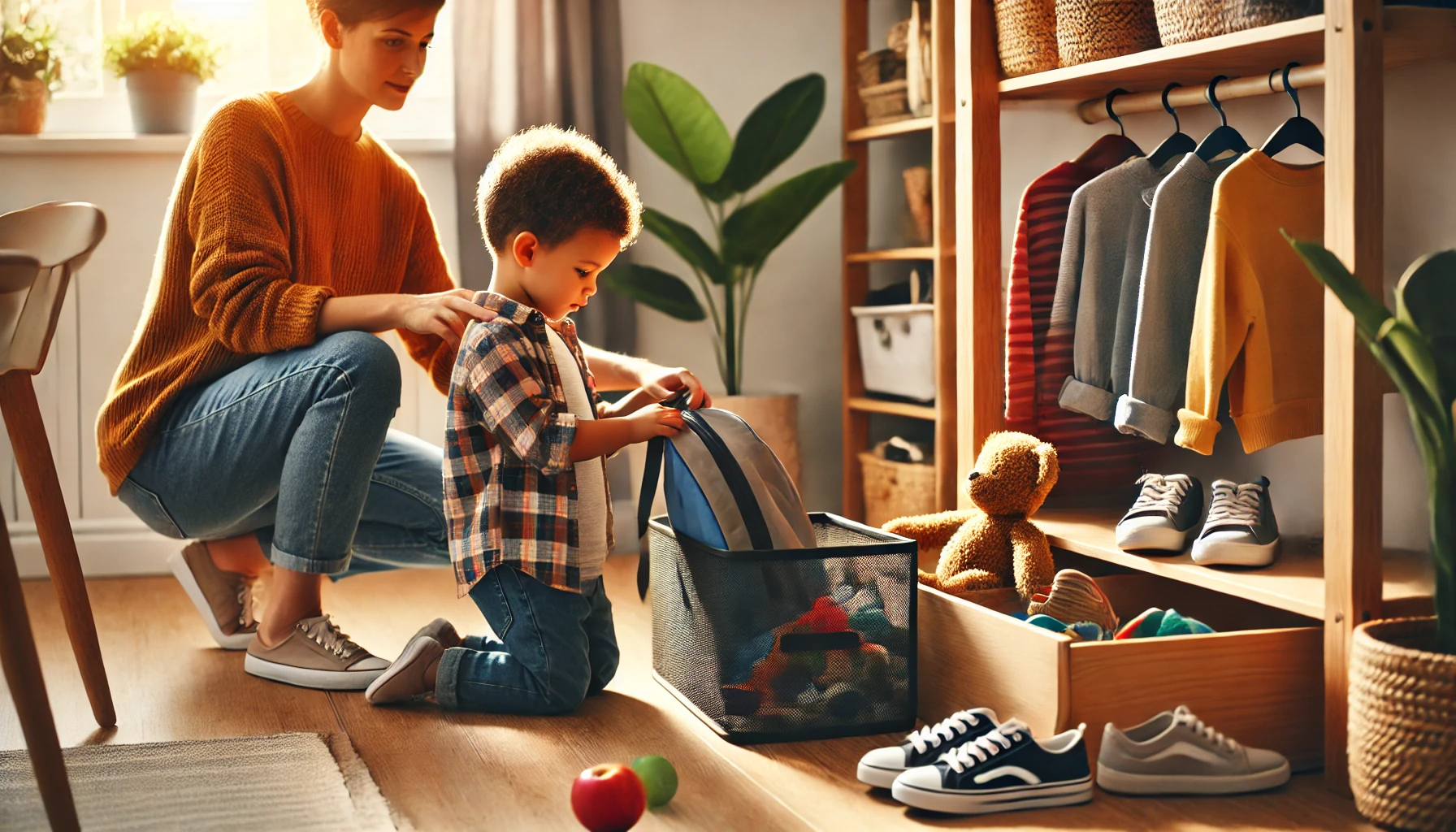How to Teach Young Children About Responsibility for Their Belongings
Teaching children to take care of their belongings helps them develop responsibility, organization, and appreciation for what they have. When kids learn to put their toys away, handle their things with care, and keep track of their items, they build habits that will benefit them throughout life. Parents can encourage responsibility through routines, positive reinforcement, and interactive activities. In this article, we’ll explore practical ways to help children take ownership of their belongings.
Why Teaching Responsibility for Belongings is Important
- Encourages independence – Helps children learn to care for their own things.
- Develops organization skills – Teaches kids how to keep track of their items.
- Builds appreciation for belongings – Reduces carelessness and loss.
- Teaches accountability – Helps children understand that they are responsible for their actions.
- Prepares for school and future responsibilities – Builds habits that lead to success in life.
1. Set Clear Expectations About Taking Care of Belongings
Helping children understand what responsibility means makes it easier to follow through.
Activity Idea:
- Explain in simple terms: “Taking care of your toys means putting them away so they don’t get lost or broken.”
- Use phrases like “If we take care of our things, they last longer.”
- Set clear household rules, such as “Shoes go in the closet when we come home.”
What Kids Learn:
- That they are responsible for their belongings
- How to keep their items safe and organized
- The importance of taking care of things to make them last
2. Create a Daily Cleanup Routine
Consistent habits help children develop a sense of responsibility.
Activity Idea:
- Set a cleanup time every evening before bed.
- Use a cleanup song to make tidying up more fun.
- Assign a special place for everything (e.g., a toy bin, a shoe rack, a school bag hook).
What Kids Learn:
- That cleaning up is a daily responsibility
- How organization makes it easier to find things
- The benefits of keeping their space tidy
3. Teach Children to Keep Track of Their Things
Helping kids learn to remember and organize their items prevents lost belongings.
Activity Idea:
- Encourage a checklist routine before leaving the house (e.g., “Do I have my backpack, lunchbox, and jacket?”).
- Use name labels on lunchboxes, school supplies, and clothing.
- Play memory games where kids find missing objects in the house.
What Kids Learn:
- How to keep track of personal items
- That remembering things takes practice and effort
- The importance of being responsible for their own belongings
4. Allow Natural Consequences to Teach Responsibility
Sometimes, experiencing the effects of forgetting something helps reinforce responsibility.
Activity Idea:
- If a child forgets their toy outside and it gets wet, discuss the result calmly: “What can we do differently next time?”
- If they misplace a favorite item, guide them through retracing their steps instead of replacing it immediately.
- Encourage children to problem-solve when they lose something.
What Kids Learn:
- That actions have consequences
- How to learn from mistakes and improve
- The importance of taking responsibility instead of blaming others
5. Make Caring for Belongings a Fun Activity
Turning responsibility into a game makes learning more enjoyable.
Activity Idea:
- Play “Find the Right Spot”, where kids race to put toys or clothes in their correct place.
- Turn laundry sorting into a color-matching game.
- Have a “Clean Room Challenge” where kids earn stickers for keeping their space tidy.
What Kids Learn:
- That responsibility can be fun
- How to quickly and easily take care of their things
- The satisfaction of keeping their space organized
6. Teach Children to Respect Their Own and Others’ Belongings
Learning to care for their own things helps kids appreciate others’ belongings as well.
Activity Idea:
- Teach children to ask before borrowing something from a sibling or friend.
- Show how to handle books and toys gently to prevent damage.
- Play role-playing games where kids practice sharing and returning items in good condition.
What Kids Learn:
- That respecting belongings extends to other people’s things
- How to handle objects carefully and with appreciation
- The importance of treating everything with care
7. Encourage Kids to Take Responsibility for Their School Supplies
Being responsible for school items helps children develop independence.
Activity Idea:
- Make packing a school bag part of their morning routine.
- Have a “Homework Station” where supplies are always kept in the same place.
- Remind them to check their backpack before leaving school to avoid forgotten items.
What Kids Learn:
- How to prepare and organize their school materials
- The importance of keeping track of homework and supplies
- That school responsibility is part of growing up
8. Praise and Reinforce Responsible Behavior
Encouragement and recognition help children take pride in their responsibility.
Activity Idea:
- Say, “Great job putting your toys away without being asked!”
- Use a Responsibility Chart where kids earn stars for keeping track of their belongings.
- Ask, “How did it feel to know where all your things were today?” to encourage self-awareness.
What Kids Learn:
- That taking care of belongings is appreciated and valued
- The joy of being responsible and organized
- The motivation to continue practicing responsibility
Final Thoughts
Teaching young children about responsibility for their belongings helps them develop independence, organization, and respect for their possessions. By setting clear expectations, using fun activities, and reinforcing positive behavior, parents can guide children in building lifelong habits of taking care of their things.
